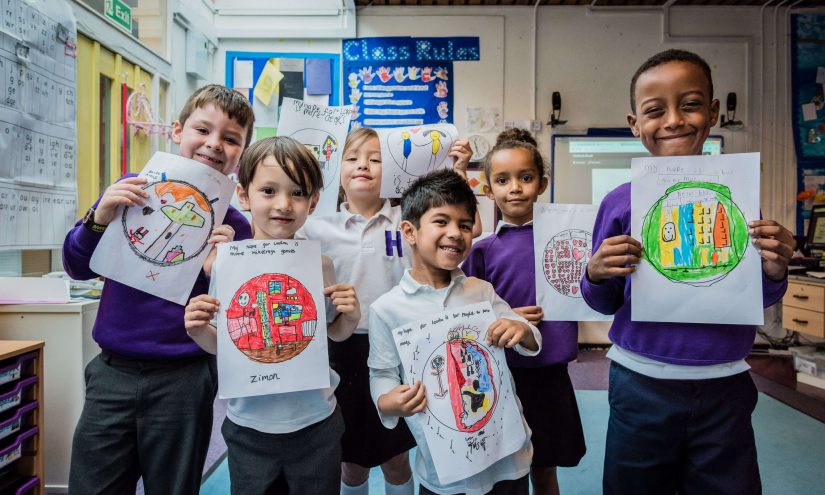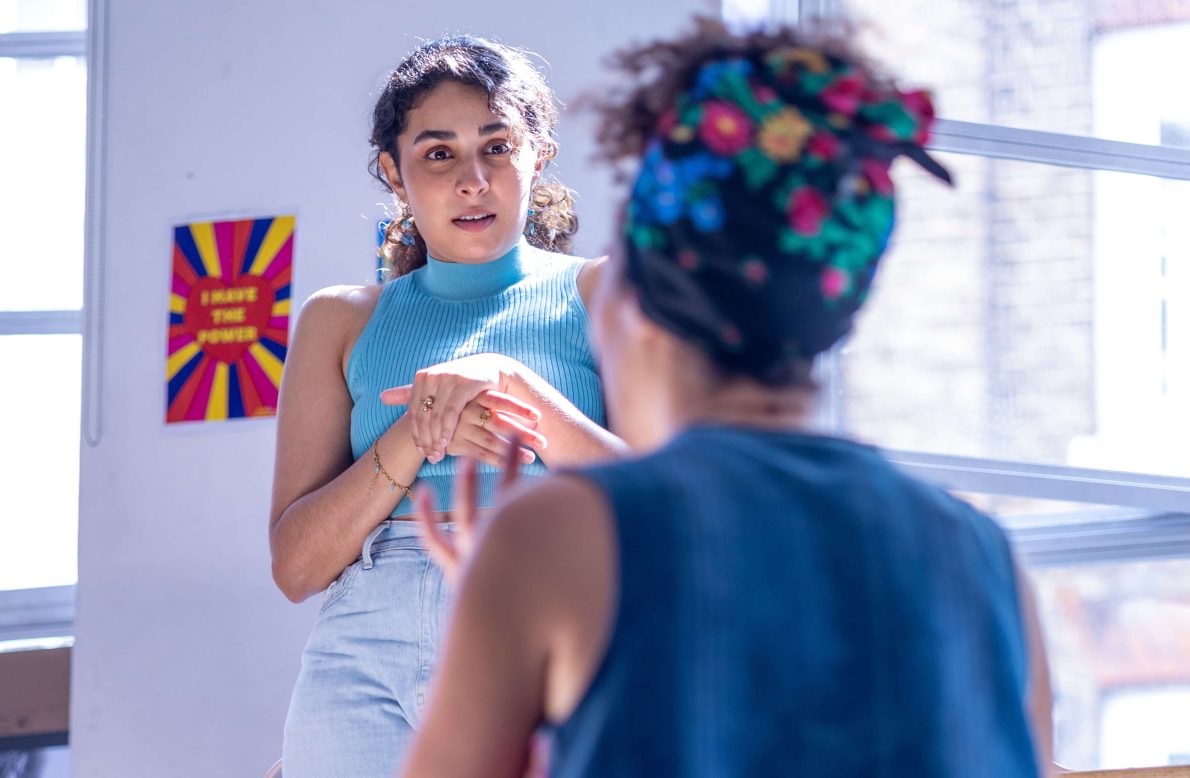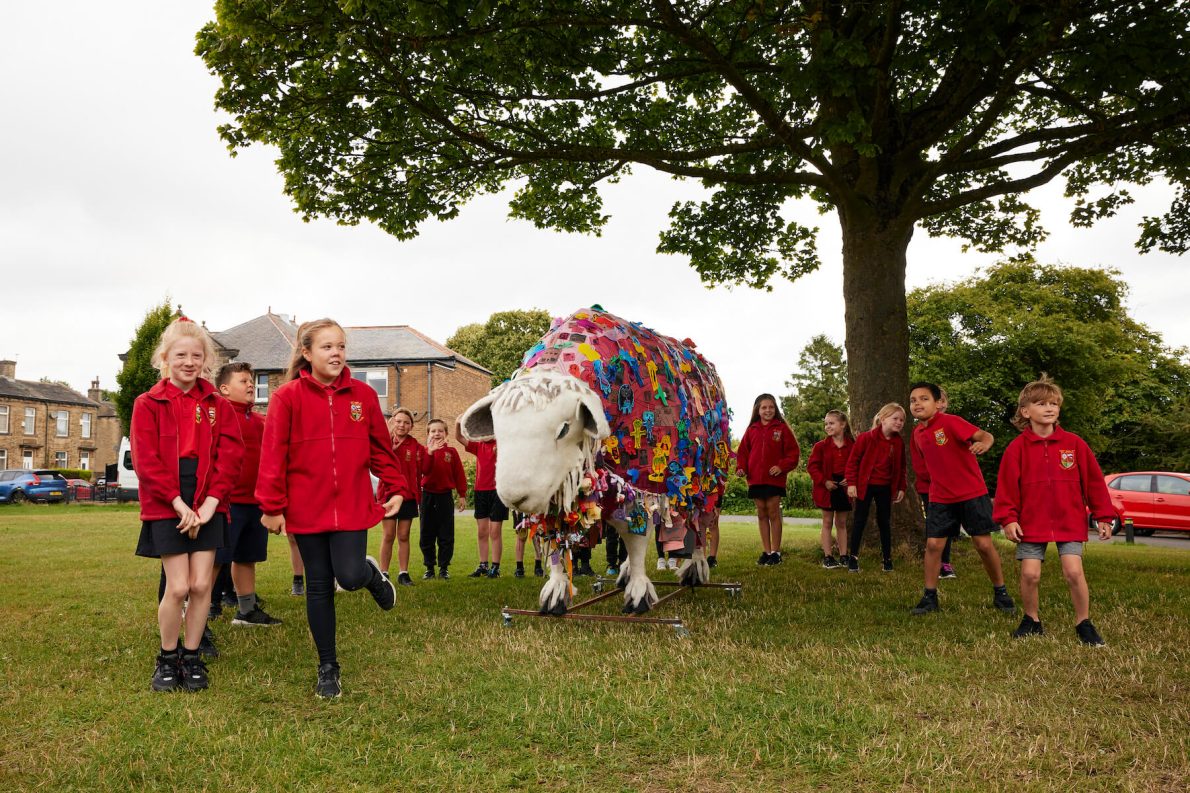


Grant funding is essential to the arts today
Listen to this blog post:
Grant funding from public bodies such as UK Arts Councils and Lottery funders, as well as private trusts & foundations, are key contributors to realising many art projects across the UK.
Trusts & foundations are charities set up to fund other organisations and individuals to meet their charitable objectives. There are around 10,000 trusts & foundations in the UK, with the top 300 giving a total of £3.7 billion away to good causes every year1.
In 2020-2021, trusts & foundations invested £309.3 million into the not-for-profit cultural sector in England2. This represents 41% of all private investment in culture, with 44% coming from individual donations and 15% from corporate giving2.
As the statistics show, grant funding plays an important role in the UK arts and culture sector. Although it’s an increasingly competitive landscape, there are lots of opportunities for organisations and individuals running creative projects.

It may be hard to know where to look for funding opportunities. A good place to start is to find out who funds similar projects, events or organisations in your local area. You can normally find this information on the organisations’ website, brochure, social media or in their accounts on Charity Commission if they are a registered charity. UK Arts Councils (Arts Council England, Arts Council of Northern Ireland, Arts Council of Wales and Creative Scotland) offer funding and advice. UK Community Foundations can signpost you to opportunities in your local area.
There are lots of databases that you can use during your research. Some are paid subscriptions like FundsOnline, My Funding Central or GrantFinder, but there are plenty of free ways to stay up-to-date with funding news, such as Artsadmin Anchor, Artquest, ArtsHub, Crafts Council, FLAMIN and Outdoor Arts UK newsletters.
Lots of organisations share opportunities on social media. You can also subscribe to free email reminders with your local authority or local Community Foundation. It is also a good idea to sign up for email reminders with the funders once you find them. If applications only happen a few times a year, put a deadline reminder in your phone/calendar.
We know that within Artichoke’s audience, there are artists who may be seeking funding for their own creative projects. Many funds can only support registered charities like Artichoke, but some funders can support other non-profit organisations, as well as individuals. Check out opportunities like Arts Council England – Developing Your Creative Practice, Dance Professionals Fund, Equity Charitable Trust, Help Musicians, Theatre Artists Fund, PRS Foundation, The Elephant Trust and The Society of Authors.
Building personable relationships is really important. Where funders are open to a conversation, it can be helpful to speak to someone directly about your idea before you apply. Research the trustees and find out if anyone involved in your project has a connection with them and might be able to advocate for your work. This advocacy is essential if a funder is closed to unsolicited applications.

Trust fundraising is very competitive and each trust receives many more applications than they are able to support. That’s why it’s important to make sure that your application meets the funder’s criteria and tells an engaging story about your work.
So, you’ve found a grant that interests you? Here are my top tips when applying.
|
Read the fund guidelines carefully. Only apply if your project meets the criteria and helps the funder achieve its funding objectives.
As many as 50% of applications fail because they don’t meet the eligibility criteria.
|
Applications can take a long time to write, so you won’t be able to apply for every opportunity that you are eligible for. Weigh up how likely you are to get the funding and prioritise funds where you think you have a greater chance of success.
|
Some trusts have deadlines, but many don’t. It can take up to 6 months for trustees to reach decisions. Most trusts can’t support retrospective costs, so you’ll need to leave enough time for a decision before your project start date.
Check how often their trustees meet and when meetings usually take place to get an idea of when you should apply.
|
Don’t be surprised by an unexpected question just before the deadline by looking at all the questions before you start writing. This lets you make sure that you have everything you need, including any information you need from other people.
If a trust uses an online application form, draft the questions in a separate document so that you have the original copy just in case. You may need to enter substitute answers in the fields to skip ahead and see all of the questions.
|
In most cases, a trust will have a particular focus and your application should be personalised to reflect their interests and priorities. Reflect the funder’s own language and don’t be afraid to explicitly state how you meet the criteria.
|
Whether answering set questions or presenting your own proposal, it’s important to tell your story from beginning to end. Start with the ‘why’ before the ‘what’; set the scene for why your project is needed, before delving into the specifics of what you’d like to do.
|
Always use clear, concise and accessible language, avoiding superlatives. Try not to use specialist jargon or acronyms as the trustees may not be experts in your field. Try to make your proposal dynamic and easy to read by breaking up your text with headings, bullet points and images. Remember that trustees will often have hundreds of applications to read, so making yours easy to evaluate will strengthen your case.
Be sure to proofread your writing or get someone else to take a look at it.
|
Demonstrate the impact of your work: testimonials, images and statistics can help bring your story to life. If you don’t have a track record to draw on, you can use partnerships with other people or organisations to support your application.
|
Budgets don’t need to be scary! They are a way of telling your story in numbers rather than words.
Your budget should reflect everything you have talked about in your application, even if some of the costs are in-kind (donated time or services). The key thing to remember is that your budget needs to balance. In other words, your project costs need to equal the money you are applying for, plus any confirmed or pending funding from other sources.
In-kind contributions can be a useful way to demonstrate wider support for your project if you haven’t got other cash funding.
|
Funders understand that budgets are projections and plans can change from application to project delivery. Do your research to ensure your costs are as accurate as possible as this will make reporting much easier if you get the grant. In the same vein, be realistic about your potential to raise any match funding – don’t overpromise.
It is normally a good idea to include a reasonable contingency to show that you are thinking carefully about your project finances.
|
Even if you write a brilliant application, trust fundraising is really competitive. There are lots of worthy projects, so chances are you will hear “no” a lot. Try not to be discouraged and keep applying for opportunities.
If you can, ask the funder for feedback on your application in case there are things you can improve next time. And don’t burn any bridges – who knows what the future holds.
Organisations like Arts Fundraising & Philanthropy and Cause4 produce great training sessions and resources.
For more information and resources, you can visit: